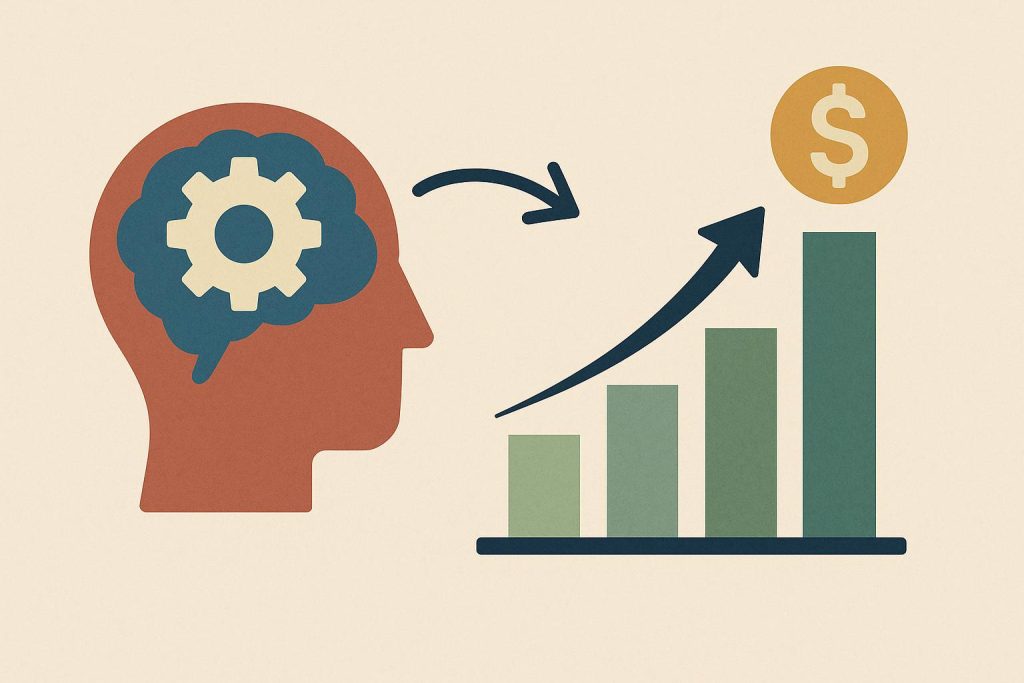David Miller CEO of PeachCap is a former chief executive and chairman who now advises leaders on scaling operations and purposeful growth. Drawing on more than two decades in finance and entrepreneurship, Miller leads Alchemy of Scale, an executive coaching business he founded in 2023, and serves as chief strategy officer and board member at FlowGardens, an award-winning indoor hemp company. His background spans roles at American Express and TVA, along with authorship of Wealth Kryptonite, a book on emotional intelligence and wealth. Miller’s coaching integrates tools like Scaling Up software and CapEx planning models to help clients balance performance with expansion. This article explores the mindset shift concept in business, a theme that aligns with Miller’s emphasis on growth habits, outcome focus, and resilience that support leaders as they test strategies, learn from feedback, and create conditions for long term results.
Exploring the Mindset Shift Concept in Business
Mindset refers to a mental framework shaping how people interpret their experiences. Accordingly, a mindset shift involves reprogramming such interpretations, resulting in individuals changing their thoughts on their capabilities, setbacks, and achievements.
To fully understand the mindset shift concept, it is imperative to look at the fixed mindset versus growth mindset dichotomy. A fixed mindset hinges on the premise that people’s abilities are static and unchangeable, while a growth mindset embraces the idea that hard work and perseverance help develop new skills, resulting in new abilities and intelligence.
Undeniably, developing a growth mindset allows individuals to face opportunities and challenges with an open mind. While entrepreneurs talk a lot about mindset shifts, it is not as easy as “reciting mantras” expecting a change. Instead, one must have seen the outcome, either through their own experiences or those of others, to believe in such a mental framework’s power.
An example of an impactful shift in business is moving from a scarcity to an abundance mindset. This involves believing there are sufficient opportunities for everyone, encouraging collaboration over competition, and, in turn, leading to shared growth. Adopting an abundance mindset helps build better relationships and attracts business opportunities.
Another critical shift is from perfectionism to progress. Perfectionism can be a productivity killer, leading to procrastination and stress. Valuing progress over perfection is freeing and allows entrepreneurs to get ideas out into the world fast, with the option to refine them later.
Embracing failure as valuable feedback is another perspective. Instead of viewing setbacks as the end of the road, this mindset treats them as an integral part of the growth journey. Asking oneself what they can learn from specific scenarios and situations allows a person to bounce back and take calculated risks.
Additionally, shifting focus from outputs to outcomes is crucial for ensuring that work has a strategic impact. An output is what is produced, whereas an outcome is the effect that is achieved. An outcome-driven mindset aligns teams around a collective purpose and fosters collaboration to create value for the organization.
Initiating mindset shifts does imply a one-size-fits-all approach. However, there are some best practices businesses can adopt. To begin, organizations should set growth-oriented goals that emphasize flexible processes over rigid performance targets. For example, a goal might be to test three new marketing strategies rather than rigidly targeting a specific revenue increase. This approach provides room for innovation and reduces the fear of failure.
Fostering a learning culture is also essential. Leaders should model growth-oriented behaviors by embracing challenges and seeking feedback themselves. This involves normalizing failure and providing constructive, actionable feedback that highlights areas for improvement.
Furthermore, individuals can practice daily reflection through methods like journaling to enhance self-awareness and track progress. Also, shifting from harsh self-criticism to self-compassion is vital, since it increases resilience and helps overcome the paralysis of perfectionism. Indeed, treating oneself with the same kindness one would offer a friend can lead to greater achievements.
Mindset shifts in business have numerous benefits. Specific examples of such mental shifts will aid in understanding these benefits. When individuals approach challenges with a growth-oriented perspective, they see obstacles as opportunities to learn rather than fear-inducing setbacks. This mindset fuels adaptability, helping organizations maintain momentum during market shifts or operational disruptions.
Additionally, leaders who model a confident, solution-focused mindset set the tone for the entire culture. Their example inspires employees to perform at their best, collaborate effectively, and remain calm under pressure. In turn, this creates strong cohesion and enhances performance across an organization.
Moreover, an employee-centered mindset drives growth. When people feel valued, supported, and trusted, they become engaged, accountable, and productive. This not only improves teamwork but also reduces turnover. Externally, a customer-focused mindset strengthens satisfaction, loyalty, and brand reputation, driving repeat business and referrals.
About David Miller
David Miller is a growth strategist and former chief executive officer and chairman at PeachCap, an Atlanta based family office financial company. He leads Alchemy of Scale, an executive coaching firm he founded in 2023, and serves as chief strategy officer and board member at FlowGardens, an award-winning indoor hemp company. His experience includes roles at American Express and TVA, and he authored Wealth Kryptonite on emotional intelligence and wealth. Miller’s work focuses on purposeful business growth, operational optimization, and leader development.

